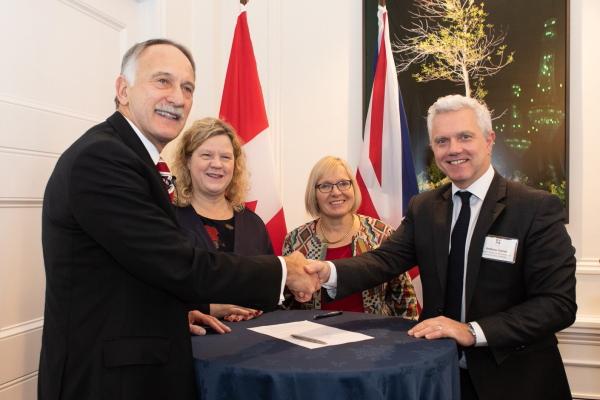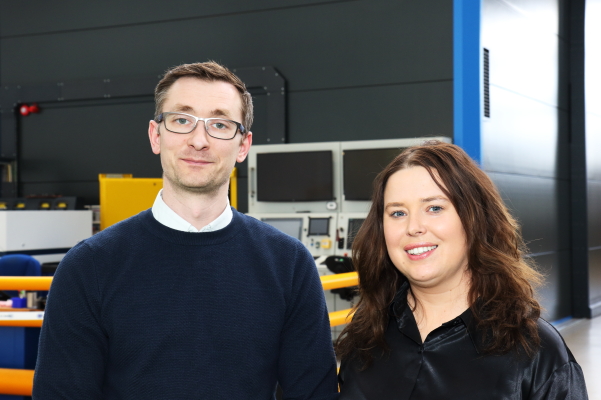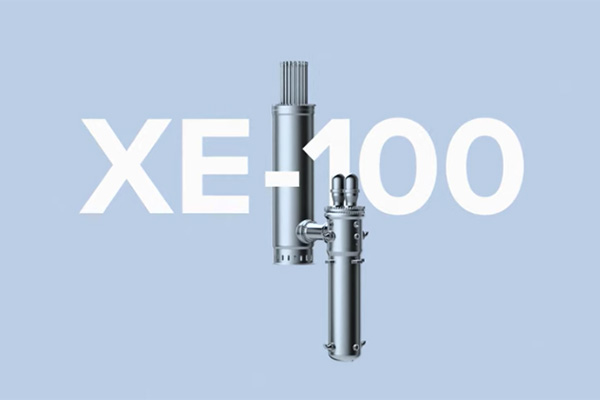Canadian Nuclear Laboratories (CNL) has signed a new agreement with the Nuclear AMRC to work together to develop new clean energy and next-generation nuclear technologies.
Mark Lesinski, president and chief executive officer of CNL, and Andrew Storer, chief executive of the Nuclear AMRC, signed the memorandum of understanding (MOU) at the Canada-UK Energy Summit in London. The annual conference aims to expand ties between the energy sectors in Canada and the UK, both of which are committed to combating climate change by transitioning to low-carbon, low-pollution and resource-efficient economies.

Under the agreement, CNL will join the Nuclear AMRC as a tier one member alongside leading nuclear organisations from around the world.
“Both CNL and the Nuclear AMRC are committed to fighting climate change through the advancement of clean energy technologies, and this MOU allows us to work in partnership towards that end,” said Lesinski.
“For CNL, membership offers tremendous benefits, including access to unique capabilities and training programs, participation in cutting-edge manufacturing innovation projects, and networking opportunities with some of the world’s leading nuclear organisations. In turn, CNL can offer the Nuclear AMRC access to our expertise and facilities from a wide range of nuclear science and technology disciplines. Overall, the MOU builds on the close relationship between both countries, and paves the way for a bright future in the pursuit of clean energy technology.”
CNL’s Chalk River Laboratories campus is home to facilities and nuclear services ranging from research and development, design and engineering to specialised technology, waste management and decommissioning.
“We are very pleased to be strengthening our collaboration with CNL, which is a testament to the longstanding relationship between the UK and Canada in driving innovation in the global civil nuclear industry,” said Storer. “Working closely with CNL will give us access to world-renowned engineering expertise and additional manufacturing research programmes linked to the development of small modular and Candu reactor technologies. We look forward to building a prosperous partnership with CNL in the years to come.”
Many of CNL’s technology areas intersect with those of the Nuclear AMRC. The two organisations intend to collaborate on fields including materials characterization and performance, and advanced manufacturing methods for small modular reactor (SMR) safety-critical components.
“CNL is currently undergoing a major transformation, funded by a $1.2 billion investment from Atomic Energy of Canada Limited (AECL) on behalf of the Government of Canada, to revitalize our Chalk River campus and renew our science and technology programs,” commented Lesinski. “As part of this transformation, we are working to develop new products and services that include the deployment of SMRs, the use of hydrogen to decarbonise Canada’s transportation sector, the development of new methods to fabricate next-generation nuclear fuels, and many others. These programs are ambitious in scope, and will certainly require the expertise and technologies of key partners – such as the Nuclear AMRC and their UK-based membership – to fully realise their potential.”
The announcement builds on the strong record of collaboration between Canada and the UK dating back to the 1940s, when both countries established a laboratory in Montreal to jointly begin research into the creation of controlled nuclear power. Most recently, CNL signed an MOU with the UK’s National Nuclear Laboratory (NNL) in 2016 to collaborate on a variety of projects in the areas of reactor metallurgy, fuel development, waste management and medical radioisotopes.
The countries also co-host the Canada-UK Energy Summit, which gathers business and government leaders from the energy sectors in Canada, the UK and around the world for discussions on accelerating clean energy adoption. The annual event, organised by the Energy Roundtable, is now in its tenth year.




